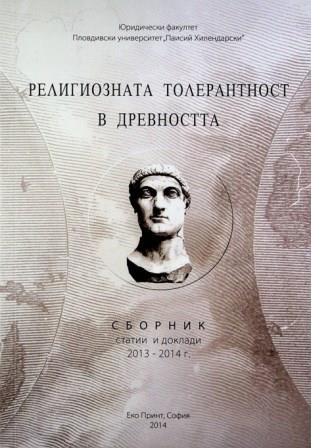Миланският едикт и религиозното законодателство на император Константин
The Edict of Milan and the Religious Legislation of Emperor Constantine
Author(s): Malina Novkirishka- Stoyanova
Subject(s): Law, Constitution, Jurisprudence, Canon Law / Church Law, Roman law
Published by: Пловдивски университет »Паисий Хилендарски«
Keywords: edict of Milan; religion; legislation; emperor Constantine
Summary/Abstract: The article presents the main concepts about defining the Christianity as religion equal to the others within the Roman Empire as indicated in the Serdica edict of emperor Galerius, 311 and the Edict of Milan by Constantine and Licinius in 313 which proclaimed religious freedom and tolerance. A comparison is made between the content and shape of two emperors’ constitutions. And it is argued that an individual act issued in Milan under the guise of an edict doesn’t exist as such. More detailed analysis is made about the legislation of emperor Constantine after 313 by examining the main tendencies of Christian philosophy and ethics that make up its ideology. In the study it is accepted that the main spheres of Christianization are both in the private law (individual status, family rights, and rights of heritage) and public law (the introduction of episcopal jurisdiction, criminal law and procedure, privileges for Christians, clerical, church property etc). The main conclusion is that emperor Constantine conducts his policy-making in a balanced way with regard to such notions as question of religion and gradual matter of Christianization within the Empire. There are a lot of references to the main compositions concerning the problems examined which makes the article useful for further study in this area.
Book: Религиозната толерантност в древността : Сборник статии и доклади 2013-2014
- Page Range: 46-70
- Page Count: 25
- Publication Year: 2014
- Language: Bulgarian
- Content File-PDF

